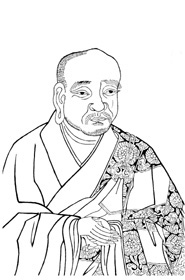A Quote by Chris Prentiss
The Zen of doing anything is doing it with a particular concentration of mind, a calmness and simplicity of mind, that brings the experience of enlightenment and, through that experience, happiness.
Related Quotes
I say that creeds, dogmas, and theologies are inventions of the mind. It is the nature of the mind to make sense out of experience, to reduce the conglomerates of experience to units of comprehension which we call principles, or ideologies, or concepts. Religious experience is dynamic, fluid, effervescent, yeasty. But the mind can't handle these so it has to imprison religious experience in some way, get it bottled up. Then, when the experience quiets down, the mind draws a bead on it and extracts concepts, notions, dogmas, so that religious experience can make sense to the mind.
Until you have the inner discipline that brings calmness of mind, external facilities and conditions will never bring the joy and happiness you seek. On the other hand, if you possess this inner quality, calmness of mind, a degree of stability within, even if you lack the various external factors that you would normally require to be happy, it will still be possible to live a happy and joyful life.
When one is rising, standing, walking, doing something, stopping, one should constantly concentrate one's mind on the act and the doing of it, not one ones' relation to the act or its character or value... One should simply practice concentration of the mind on the act itself, understanding it to be an expedient means for attaining tranquility of mind, realization, insight, and wisdom.
So the most difficult thing is always to keep your beginner's mind. There is no need to have a deep understanding of Zen. Even though you read much Zen literature, you must read each sentence with a fresh mind. You should not say, "I know what Zen is," or "I have attained enlightenment." This is also the real secret of the arts: always be a beginner. Be very very careful about this point. If you start to practice zazen, you will begin to appreciate your beginner's mind. It is the secret of Zen practice.
You can indeed be aware of your body, but you can also be aware of your mind - you can right now notice all the thoughts and ideas and images floating in front of the mind's inward eye. You can, in other words, experience your mind, be aware of your mind. And it's very important to experience your mind directly, cleanly, intensely, because only by bringing awareness to the mind can you begin to transcend the mind and be free of its limitations.
































